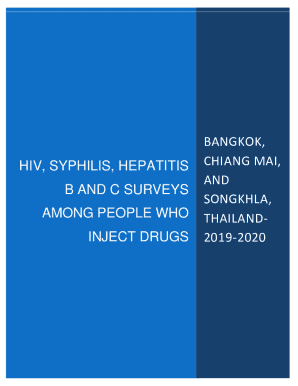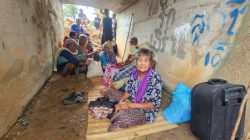A New Rapid Test Panel for Maternal Health
A groundbreaking rapid test panel for HIV, hepatitis B, and syphilis screening in pregnant women was introduced at the International AIDS Society (IAS) Conference on HIV Science in Kigali. This new tool, known as the Determine™ Antenatal Care Panel (ANC panel), is designed to enhance the detection and treatment of maternal infectious diseases. The test was developed by Abbott, a global healthcare company specializing in medical diagnostics, and received World Health Organization (WHO) prequalification on July 10. It enables the screening of pregnant women for three critical infections using a single finger prick, delivering results within 20 minutes.
Enhancing Access to Essential Diagnostics
Steven Henn, head of Global Commercial Operations Rapid Diagnostics at Abbott, emphasized that the test is tailored for busy clinics with limited staff and resources. Its goal is to reduce delays in diagnosis and help countries meet WHO’s 2030 elimination targets. Each kit includes all necessary components to avoid shortages that often disrupt testing services. Henn noted that the test supports national data collection by providing quicker, combined results, which are essential for identifying gaps in treatment coverage, especially among men and hard-to-reach populations.
The triple elimination test was developed based on feedback from frontline health workers, ensuring it meets real-world needs. By packaging everything in a single kit, the risk of missing components or running out of supplies is minimized, making it an efficient solution for resource-limited settings.
Rwanda’s Path to Adoption
Dr. Gallican Rwibasira, Head of National HIV, STIs and Hepatitis Programmes at Rwanda Biomedical Centre (RBC), explained that Rwanda’s timeline for adopting the triple elimination test panel depends on funding availability and other factors. He stressed that the process prioritizes scientific evidence and accuracy before cost considerations. Rwanda collaborates with global funders to protect national interests, and the use of rapid HIV and hepatitis B tests will facilitate the addition of syphilis through the combined panel.
Rwanda has made significant progress in expanding maternal HIV testing to over 99% coverage among pregnant women and strengthening hepatitis B testing to nearly 97%. However, syphilis testing coverage remains below 70%, primarily due to reliance on laboratory-based methods that require separate blood samples and delayed results. Dr. Rwibasira highlighted that point-of-care testing allows immediate action, preventing patients from being lost between testing and treatment.
Expanding Beyond Antenatal Care
Field evaluations of the new triple test in Rwanda showed that nearly all healthcare workers could use it without adding difficulty to routine antenatal care. Rwanda’s approach focuses on bringing services closer to communities and integrating them into primary care, supported by community health workers. Dr. Rwibasira proposed extending the use of the triple elimination panel beyond antenatal care to include partner testing during pregnancy, emphasizing that focusing solely on mothers risks overlooking infections in male partners.
Real-World Impact and Future Prospects
Dr. Missiani Ochwoto, a researcher at the Kenya Medical Research Institute, presented data from a study involving a four-disease panel covering HIV, hepatitis B, syphilis, and malaria. Conducted between 2021 and 2023 across four counties and involving 577 pregnant women, the study used a single finger prick to test for all diseases at once. The combined test reduced testing time by about 65% and lowered referrals to external laboratories. For mothers, this meant fewer visits and less travel costs, saving nearly 10% in time and expenses.
The study also showed improved hepatitis B testing coverage when the infection was included in a combined test, addressing gaps linked to cost and inconsistent test availability. Digital tools supported the Kenyan pilot, using an Open Data Kit (ODK) system to send results directly to central health databases, enabling quick reactions to new HIV cases found through antigen testing.
The Role of WHO Prequalification
Deborah Birx, former U.S. Global AIDS Coordinator and a global health expert, highlighted the importance of WHO prequalification (PQ), which many countries use to decide on introducing new products. She noted that while co-packaging HIV and syphilis tests improved syphilis testing rates in countries like Malawi and Zambia, hepatitis B testing still lags. Without data, hepatitis B remains invisible, and more integrated diagnostics are needed to fill these gaps.
Birx added that although African HIV programmes have built strong technical expertise and proven resilient even during crises, they still rely heavily on external funding. Maternal infectious disease testing is part of a wider effort to detect other silent conditions, such as hypertension and diabetes, using the same community-level networks. If we can test many people for HIV, we can do the same for other diseases.







